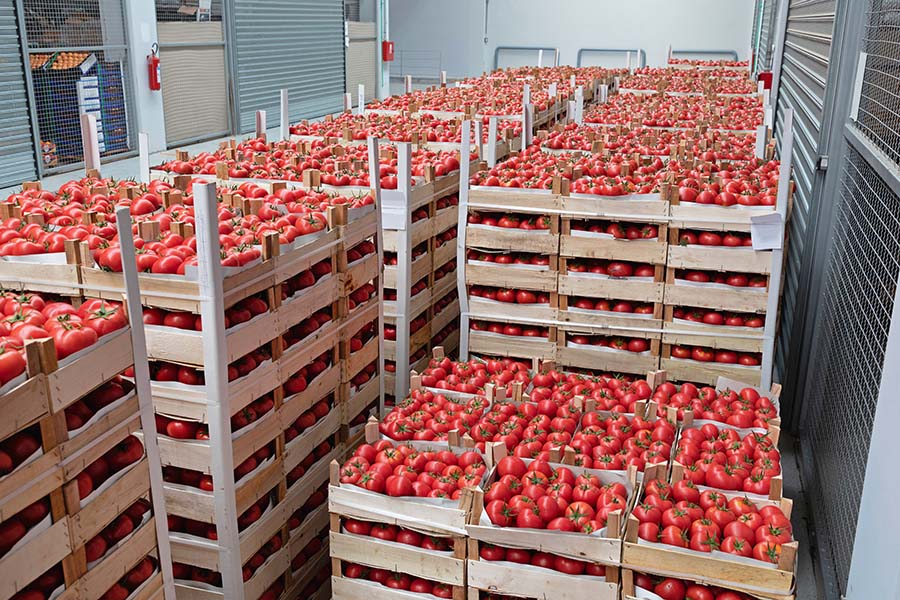U.S. to exit trade agreement for fresh tomatoes from Mexico in mid-July
U.S. pizzerias that use true San Marzano tomatoes, Parmigiano Reggiano cheese and Prosciutto di Parma are getting a short reprieve since a proposed 20% tariff on imported European goods has been suspended for 90 days. However, the U.S. Commerce Department is moving ahead with plans that include duties of nearly 21% on tomatoes imported from Mexico.
Mexico supplies 63% of vegetable imports and 47% of fruit and nut imports to the United States for a total value of nearly $18 billion – including nearly $3 billion in tomatoes alone. The 20.91% duties on tomatoes will go into effect July 14, according to the Commerce Department. “The current agreement has failed to protect U.S. tomato growers from unfairly priced Mexican imports,” says a news release issued by the International Trade Administration. “This action will allow U.S. tomato growers to compete fairly in the marketplace.”
Not all U.S. businesses stand to benefit, however. If tariffs are applied as proposed, National Restaurant Association President & CEO Michelle Korsmo believes they will create large-scale disruption. Food and packaging costs will increase, she says, which will result in higher prices for consumers.
“Restaurant operators know consumers are very sensitive to costs and have kept menu price increases to 30%, while their food costs have gone up 40% in the last five years,” Korsmo says. “Restaurant operators rely on a stable supply of fresh ingredients year-round to provide the menu items their customers want and expect. Many restaurant operators source as many domestic ingredients as they can, but it’s simply not possible for U.S. farmers and ranchers to produce the volumes needed to support consumer demand.”
Canadian agricultural imports to the U.S. include grains used for flour as well as seeds used to produce cooking oil. The U.S. imports an average of 2.3 million metric tons of wheat from Canada per year, the U.S. Department of Agriculture says. Canada also supplies the majority of imported mushrooms in the U.S., or about 25% of total domestic supply, according to the USDA.
In response to the White House suspending proposed tariffs against imported European goods, European Union President Ursula von der Leyen agrees to suspend a 25% retaliatory tariff against U.S. goods “to give negotiations a chance.” Twenty-seven countries make up the European Union, including Italy, the birthplace of pizza and the source of many sought-after pizza ingredients. For example, international regulations outlined by the Associazione Verace Pizza Napoletana (AVPN) say pizzaiolos should use peeled tomatoes that are “preferably Italian,” along with “Buffalo mozzarella from Campania D.O.P.” and Naples salami.
According to the Olive Oil Times, 20% tariffs would have a large impact on oils sourced from Italy, Greece, Portugal and Spain. Tunisia, which had been set to face a 28% tariff, currently is working to negotiate a better trade deal.
In the meantime, pizzerias might consider stocking up on non-perishable purchases from abroad, particularly any large equipment that must be shipped by sea. According to the U.S. Department of Commerce, retail spending in March is up 1.4% – or 4.6% year over year – as consumers look to lock in prices before tariffs take effect. Total sales at eating and drinking businesses in March are up 1.8% over February numbers, the largest monthly increase in more than two years.



